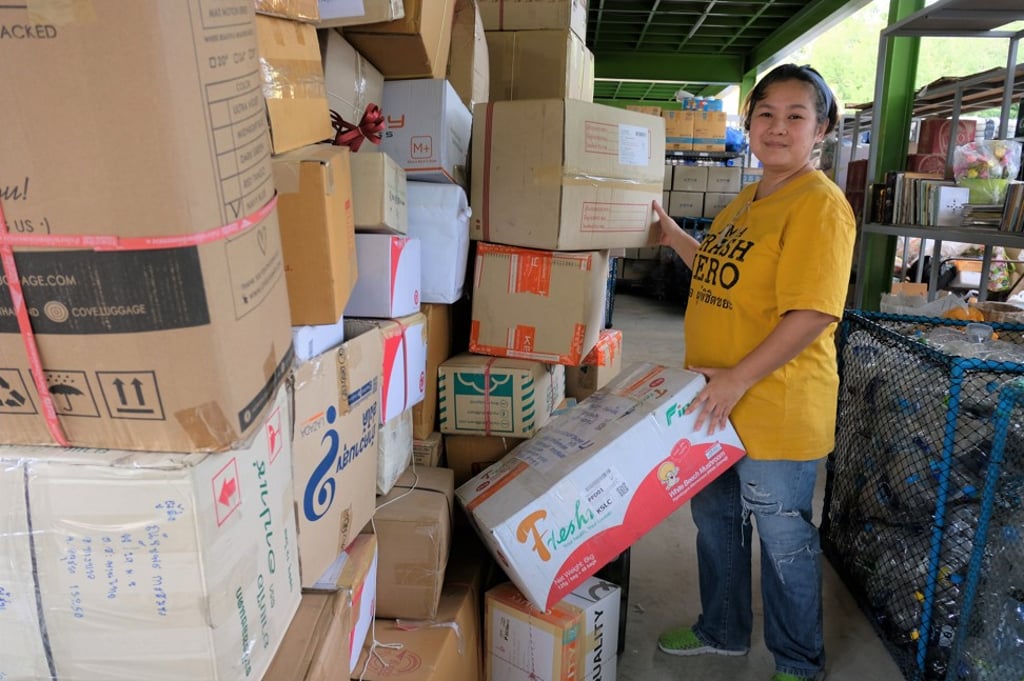Advertisement
Plastic recycling: temple in Thailand turns used bottles into monks’ robes, and hopes to turn followers into recyclers
- Buddhists earn karmic credit by donating alms, such as food and monks’ robes, to monasteries. One temple now accepts used plastic bottles as alms instead
- Processing plants turn the plastic into cloth from which volunteers sew new robes. The project is one of several recycling initiatives the monks have launched
Reading Time:5 minutes
Why you can trust SCMP

At Wat Chak Daeng, a Buddhist monastery in Thailand’s Samut Prakan province, bulky cardboard boxes are being stacked on top of each other in an outdoor storage area.
The boxes have just arrived in the mail. One was sent from Pattani, a Muslim-majority province in Thailand’s southernmost region. Another was posted from Chiang Mai in the mountainous north. A third was dispatched from Nong Khai province by the Mekong River in the northeast.
“We’re getting packages from all around Thailand,” says Iraj Rithsureegul, who helps out as a volunteer at the temple. “Many people send them by courier.”
Advertisement
Their contents? Empty plastic water bottles.

Advertisement
Customarily, Buddhists donate food, toiletries and other necessities to monks – and used water bottles hardly qualify as desirable items, especially in a country where some 4.4 billion bottles are produced every year and millions are thrown away daily.
At Wat Chak Daeng, though, donations of single-use plastic bottles made of polyethylene terephthalate (PET) are welcome. In fact, resident monks encourage people to bring or send discarded bottles to the temple, whose grounds sprawl in scenic settings by the Chao Phraya River.
Advertisement
Select Voice
Choose your listening speed
Get through articles 2x faster
1.25x
250 WPM
Slow
Average
Fast
1.25x